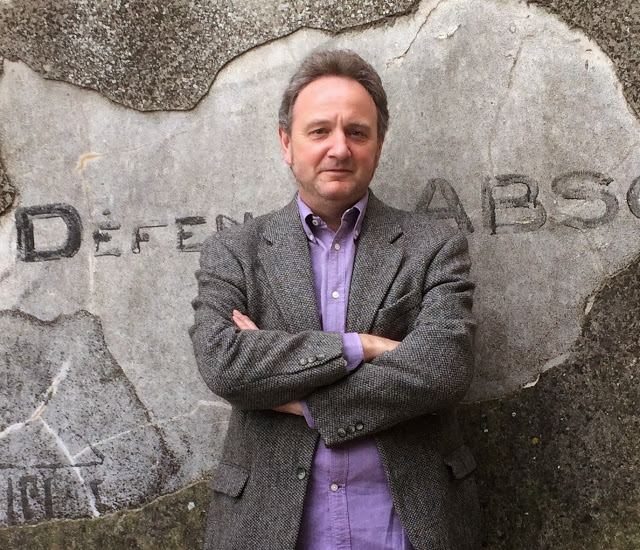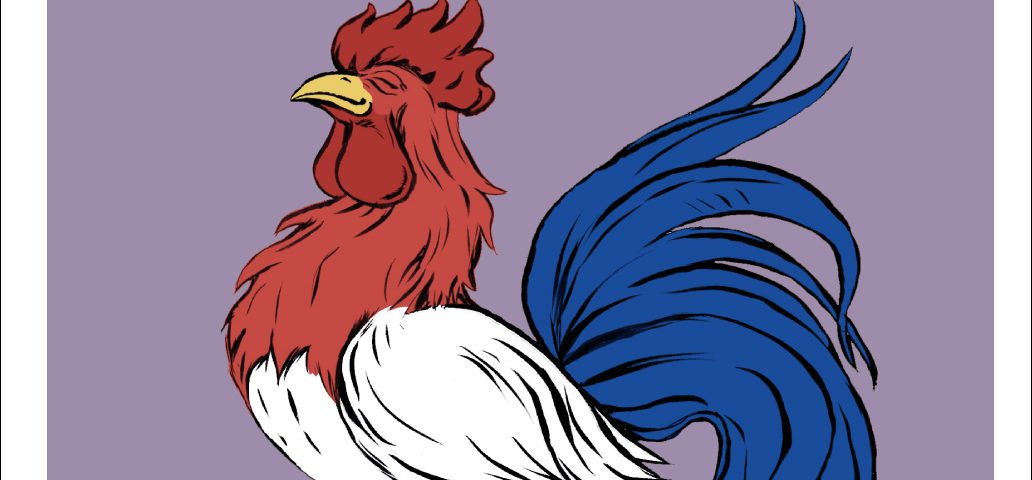[twitter style=”horizontal” float=”left”] [fblike style=”standard” showfaces=”false” width=”450″ verb=”like” font=”arial”]

Rick is the alter ego of Master of Wine and Wine Trust 100 supplier, Richard Kelley. Over the past 20 years, Richard has become one of the most respected authorities on South African wine in the UK. Between 1995 (the year he qualified as an MW) and 2002, he lived and worked in the Cape, witnessing the renaissance of the post-apartheid wine industry. Throughout this fruitful period, he established a healthy rapport with the great and the good of the local wine scene, affording him access to their distinguished cellars.
Richard writes his first blog for us here.
Being born to virtually teetotal parents in the gastronomic desert that is Leicester suggests that I was never a natural candidate to pursue a career in the wine trade. However, as a child I loved food and so I left school at 16 with the aim of becoming a chef, and it was through this fairly precarious route that I made the discovery that was to forever change my life; the cathartic moment coming with a bottle of 1969 Vouvray from Domaine Huet. That was in the summer of 1981.
The decision to attempt the Master of Wine examination came in 1993, the first year the dissertation was introduced into the syllabus. My chosen subject was to be ‘The importance of temperature in red wine making’, which led me to visit South Africa for the first time, in search of a New World perspective. Remember this was a time when Mandela was still on his ‘long walk to freedom’ and free elections were still over a year away.
I fell in love with South Africa. Who wouldn’t? It’s the most beautiful wine growing region on earth. But the industry was in a mess: years of political, financial and even physical isolation had taken its toll. However, opportunity was rife and I was determined to play a small part in the country’s repatriation into the international wine drinking community.
In January 1995, I went to work a three month stage with The Bergkelder in Stellenbosch. During this time I was introduced to Tim Rands, owner of Vinimark, the largest independent wine wholesaler in South Africa and we discussed me working on a six month contract. My role within Vinimark was to develop international markets, representing the interests of both Robertson Winery and the then unknown wine farm in Franschhoek called Boekenhoutskloof.
My original six-month contract became a seven-year tenure, but by the end of 2001 I was beginning to think my time in the Cape was up and I was ready to move back home. Thankfully, my work in the British wine trade ensured that I would continue to visit the Cape on a regular basis.
Wishing to keep up with my old winemaking friends, and ensuring that I was ahead of the game when it comes to seeking out the next generation of winegrowers, I would invariably build in some time to visit cellars and taste the new vintages. It was during this time that the concept of The Liberator was born. I found myself increasingly confounded by the number of great wines that were resigned to the tragic fate of being blended away or disposed of in bulk. There might be an occasional experimental batch here, or possibly an interesting off-cut from some proud winemaker’s latest premium release there, so more and more I was drawn to the idea of liberating these vinous orphans and consigning them to a better home.
The Liberator was born.
The name The Liberator conjured up the image of some comic-book super-hero, disguised and cloaked, charging around the Winelands whilst rescuing bottles in distress. So, The Liberator became a character. My alter-ego: Rick. No Superman though; a Cape crusader perhaps, but one where cloaks are exchanged for a rather tatty Harris Tweed jacket and any superhuman powers are substituted by a supposedly blessed palate.
Inevitably, each wine discovered by Rick comes with its own story; a tale of its untimely existence, with every release recalled in bottle and on screen, as a unique and evocative cartoon episode. What makes The Liberator different is that it doesn’t adhere to any standard formula for selecting episodes. There is no set style or quantity. No fixed price point. The selection of the wines is completely fluid, with no two releases ever being the same. Each is exclusive and finite. When they’re gone, they’re gone. But what is constant is whatever the wine it’s received Rick’s own seal of approval.
The two current releases, both listed by Wine Trust 100, are ‘The Francophile’ Chenin Blanc and ‘The Francophile’ Syrah, both sourced through the highly regarded De Morgenzon estate in Stellenbosch. The pair pay homage to the fact that I am ultimately a lover of French wines. Whilst the intended style of the Chenin is not to replicate the wines of the Loire, it is, in my opinion, the greatest grape variety on the planet and it’s my mission from God to broadcast this fact to an unbelieving public. The Syrah is in a young, fresh and crunchy style; the way I remember Crozes Hermitage to taste before a certain wine writer appeared in the 1980s and the style appeared to change to suit the north-American palate.
Watch out for new ‘episodes’ appearing during the course of 2015. Who knows what The Liberator might uncover next…
[twitter style=”horizontal” float=”left”] [fblike style=”standard” showfaces=”false” width=”450″ verb=”like” font=”arial”]

